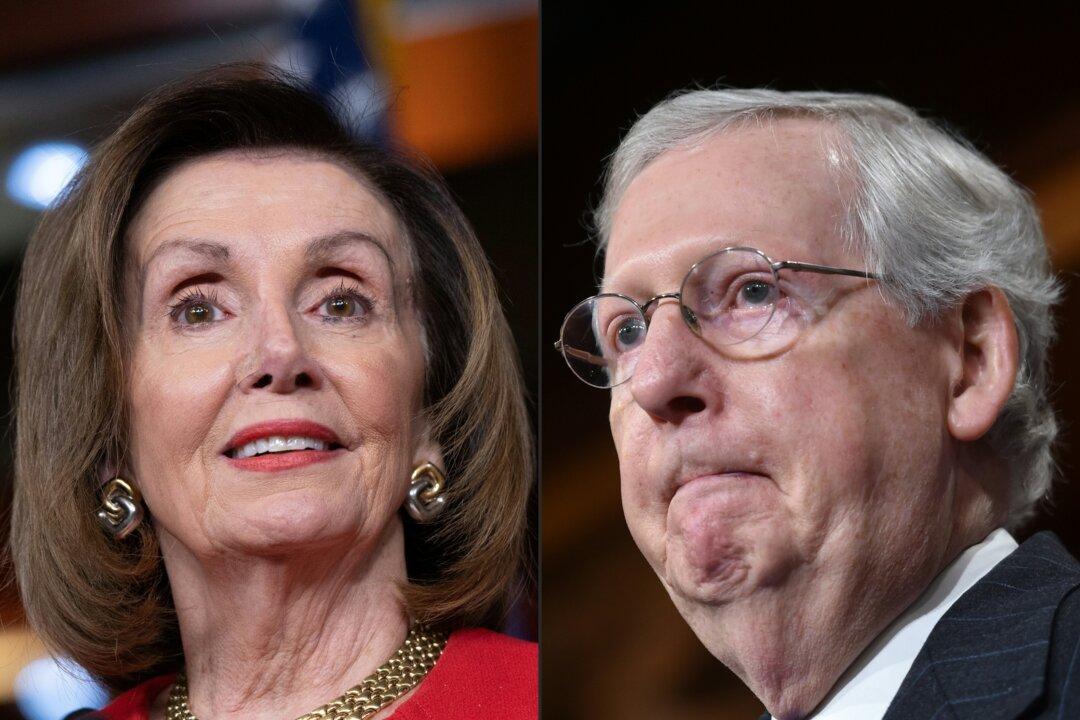Senate Majority Leader Mitch McConnell (R-Ky.) and House Speaker Nancy Pelosi (D-Calif.) expressed confidence on Dec. 15 that talks about the next round of pandemic relief are nearing a successful conclusion.
McConnell, Pelosi Express Optimism for Spending, COVID-19 Relief Deals

House Speaker Nancy Pelosi (D-Calif.), left, at a press conference on Capitol Hill on, Dec. 19, 2019 and Senate Majority Leader Mitch McConnell (R-Ky.) at a media availability on Capitol Hill in Washington on Nov. 7, 2018. Saul Loeb and Nicholas Kamm/AFP via Getty Images

Tom Ozimek
Reporter
|Updated:



